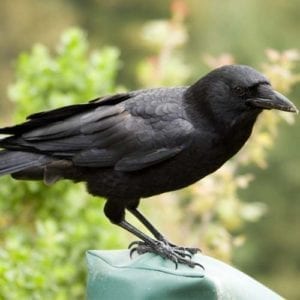
by Pigeon Patrol | May 8, 2016 | 4-S Gel Bird repellent, Animal Deterrent Products, Bird Deterrent Products, Bird Netting, Pigeon Spikes
 Back in February, the BBC posted a story about a Seattle girl who got gifts from crows. She was brought bolts, beads, buttons, earrings, and bones, among other things. It was also revealed that she feeds these animals. The essence of the story, the reason it went viral, is it so perfectly, in the popular imagination, captured an innocent relationship between a child and the wild. The birds understood her and she understood them. Like all children, she had not become a human (experienced) yet. She still had a primal connection with the animal kingdom.
Back in February, the BBC posted a story about a Seattle girl who got gifts from crows. She was brought bolts, beads, buttons, earrings, and bones, among other things. It was also revealed that she feeds these animals. The essence of the story, the reason it went viral, is it so perfectly, in the popular imagination, captured an innocent relationship between a child and the wild. The birds understood her and she understood them. Like all children, she had not become a human (experienced) yet. She still had a primal connection with the animal kingdom.
But even this paradise proved to be short-lived. By August, the neighbors of the girl were suing her family for attracting all manner of wild urban life to their upscale Seattle neighborhood, Portage Bay. Crows, pigeons, squirrels, and even rats, they claimed, had all learned about this girl and her generosity. Seagulls were seen as flying from Elliot Bay to Portage Bay with the certainty that the main problem of life will be solved there. The neighbors claimed that, as a consequence, the shit of these synanthropic animals spoiled their properties. They wanted $200,000 in damages. Now the girl’s family is fighting back, claiming their daughter’s feeding has not attracted rats and gulls.
What to make of this situation? I asked my favorite writer and thinker on crows, Lyanda Lynn Haupt (she wrote Crow Planet: Essential Wisdom from the Urban Wilderness), for her view on the escalating tensions in Portage Bay. She responded with a lovely and insightful letter:
I think that many people long for a sense of connection with wild animals. This story served up evidence of such a possibility, and it captured everyone’s imagination. Plus, let’s face it—that little girl is cute as pie. No wonder social media went crazy. Did the crow really bring gifts to the girl? Some crows do gather shiny bits of this and that—gum wrappers, thumb tacks, shells, foil, bright red berries—and cache them in one place. Little collections of treasure. I can see how this action could be interpreted as the bringing of gifts to the little girl with the food, and there is little harm in imagining this to be so. That said, there is no reason to be feeding crows. They are already flourishing in the urban environment, and the neighbors are right—the amount of food it takes to bring in that many crows can make a mess and invite even more problematical urban wildlife. Even in this little video there are squirrels and pigeons. Whether there is evidence of rats or not, they are common visitors to urban bird feeders, even much smaller ones.
The neighbors are freaking out a bit. It is not “The Birds.” No one is going to get sick. And hanging dead crows on your porch (legal or not) to deter the neighbors and their crow visitors is just creepy. But lots of crows and pigeons and food and mess around? I agree, not good. Loud, annoying. And not in line with a deeper understanding of what helps and what harms urban wildlife. To live well alongside urban wildlife and our human neighbors: Keep cat and dog food inside (so as not to attract rodents, raccoons, coyotes, and crows). Close up entrance holes to keep animals from entering to shelter or nest. And if you do feed birds: just small feeders for small birds, cleaned scrupulously, with seeds that fall beneath cleaned up daily. Better would be to plant native trees and shrubs with seeds and berries that local birds love. I think it is a beautiful privilege to live alongside wild creatures close to home. But we need to do it with some grace and wisdom.
I think the story is sticking around so long because of the winning combination: cute girl with pet wild birds and lawsuit!
There is one more thing. I think if the crow feeder was a boy, the neighborhood may not have been so aggressive and filed a lawsuit. What is seen as annoying in a girl is often registered as a gift in a boy.
About Pigeon Patrol:
Pigeon Patrol Products & Services is the leading manufacturer and distributor of bird deterrent (control) products in Canada. Pigeon Patrol products have solved pest bird problems in industrial, commercial, and residential settings since 2000, by using safe and humane bird deterrents with only bird and animal friendly solutions. At Pigeon Patrol, we manufacture and offer a variety of bird deterrents, ranging from Ultra-flex Bird Spikes with UV protection, Bird Netting, 4-S Gel and the best Ultrasonic and audible sound devices on the market today.
Voted Best Canadian wholesaler for Bird Deterrent products four years in a row.
Contact Info: 1- 877– 4– NO-BIRD (www.pigeonpatrol.ca)
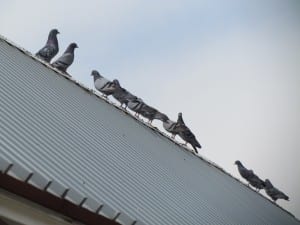
by Pigeon Patrol | May 7, 2016 | 4-S Gel Bird repellent, Animal Deterrent Products, Bird Netting, Pigeon Patrol's Services
 A warehouseman died from lung cancer caused by birds pecking the asbestos roof of a store where he used to work, an inquest heard.
A warehouseman died from lung cancer caused by birds pecking the asbestos roof of a store where he used to work, an inquest heard.
For 12 years the deadly dust floated down on Anthony Jones, who got a job at the cash and carry when he was 15 but left three decades ago.
He was killed this year, aged 57, by mesothelioma – a type of lung cancer whose only known cause is asbestos fibres.
Mr Jones had said after being told he had terminal cancer: “I can’t recall ever working with or near asbestos.
“My exposure was most likely at the firm’s ex-premises in Gloucester, as I was told there was always a problem with birds pecking the asbestos-based roof.”
GNSThe cash’n carry warehouse where Anthony Jones workedDeadly: The cash and carry warehouse where Anthony Jones worked
Fibres: Pigeons pecking the asbestos roof were a constant problem
Daily Mirror Campaign Asbestos time bomb logoCall for action: The Daily Mirror has been running the Asbestos Timebomb campaign
A post-mortem on the bachelor, of Frampton on Severn, found 19,355 asbestos fibres per gram of dry lung tissue, a level consistent with work exposure.
Coroner Katy Skerrett recorded a verdict of death due to industrial disease and said: “It’s not the type of employment where you’d expect to be exposed to asbestos.”
The victim’s sister Margaret Ball, 72, said after the Gloucester inquest: “This dust was floating down on him all that time at work and seems that is why he got this terrible disease years later.”
About Pigeon Patrol:
Pigeon Patrol Products & Services is the leading manufacturer and distributor of bird deterrent (control) products in Canada. Pigeon Patrol products have solved pest bird problems in industrial, commercial, and residential settings since 2000, by using safe and humane bird deterrents with only bird and animal friendly solutions. At Pigeon Patrol, we manufacture and offer a variety of bird deterrents, ranging from Ultra-flex Bird Spikes with UV protection, Bird Netting, 4-S Gel and the best Ultrasonic and audible sound devices on the market today.
Voted Best Canadian wholesaler for Bird Deterrent products four years in a row.
Contact Info: 1- 877– 4– NO-BIRD (www.pigeonpatrol.ca)
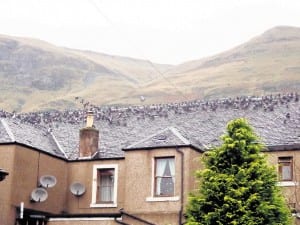
by Pigeon Patrol | May 6, 2016 | 4-S Gel Bird repellent, Animal Deterrent Products, Bird Deterrent Products, Bird Netting
 CASTLEHILL Church has been made secure ahead of a major clean-up inside.
CASTLEHILL Church has been made secure ahead of a major clean-up inside.
The privately owned building has become a roosting place for hundreds of pigeons, who have been able to access the building via slats in the roof and gaps in the stained glass windows.
Following pressure from the public and Moray Council during the summer, owner Claire Love has employed John Still Steeplejacks of Aberdeen to carry out the task.
Neighbouring manse owner, Kay Ferrett’s family suffered more than most from an infestation of flies plaguing the west end of Forres High Street, believed to be coming from numerous bird carcasses and droppings inside the church.
“Work has started on pigeon removal and clean up,” confirmed Ms Love in a brief email to the ‘Gazette’.
Mrs Ferrett was able to see the size of the task for herself when she went inside with the contractors.
“It’s nuts,” she said. “I never thought it would be this bad!
“They gave me a surgical mask to wear and I was escorted inside via the basement entrance.
“What I saw was horrendous – I was shocked by the mess and overcome by the smell, even through the mask. There was so much excrement and dead pigeons everywhere.
“It’s absolutely covered in poo and pigeons so I’m not surprised there were so many flies in my house over the summer.”
John Still Steeplejacks, roofers, slaters and joiners, also deal with bird and pest control.
“Our job is to clear the church of wildlife then clean up any mess they’ve made,” said Mr Still.
“We have no specific time frame but we want to get it done as quickly as possible as we have other commitments to keep.”
Homes and businesses near the church endured an invasion of flies during the summer, many believe were a result of what was inside.
Having seen them for herself, Mrs Ferrett hopes the clean-up will stop a repeat.
“Once we got upstairs, apart from what was underfoot, I was overcome by the beauty of the hall. It’s such a shame that it has been allowed to get into the state it’s in now.
“I was upset to hear that the church owner did not stick to the time lines for the clean-up set by the local authority during the last few months
“Thankfully they’re dealing with it now but I’m told it will take a few months to clean up.”
Moray Council will not be taking any enforcement action.
“The owner appears to be complying with what was requested of her in terms of boarding up the windows etc to prevent birds getting in and cleaning up the mess,” said a spokesman. “Assuming the owner is doing everything that was asked of her, we will not be taking any action.”
Meanwhile, a collapsing wall on the west wing continues to pose a problem for the community. Youths previously accessed the building at that side before it was secured.
Mr Still warned that it continues to be an issue: “A lower flat roof inside on the west wing is dangerous,” he said. “Particularly if anyone was to stand on it.
“We plan to put warning signs up to warn folk.”
About Pigeon Patrol:
Pigeon Patrol Products & Services is the leading manufacturer and distributor of bird deterrent (control) products in Canada. Pigeon Patrol products have solved pest bird problems in industrial, commercial, and residential settings since 2000, by using safe and humane bird deterrents with only bird and animal friendly solutions. At Pigeon Patrol, we manufacture and offer a variety of bird deterrents, ranging from Ultra-flex Bird Spikes with UV protection, Bird Netting, 4-S Gel and the best Ultrasonic and audible sound devices on the market today.
Voted Best Canadian wholesaler for Bird Deterrent products four years in a row.
Contact Info: 1- 877– 4– NO-BIRD (www.pigeonpatrol.ca)
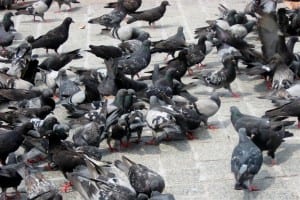
by Pigeon Patrol | May 4, 2016 | Animal Deterrent Products, Bird Netting, Pigeon Patrol's Services, Pigeon Spikes
 Who or what is killing birds in Utica’s downtown?
Who or what is killing birds in Utica’s downtown?
That is the question Matthew Perry, a Utica Peregrine Falcon Project founder, and others are trying to answer after members of the group found around 20 dead pigeons and other birds over the weekend.
“We’ve found several of the birds to have corn in their throats and in their bills and around their bodies,” Perry said Monday. “That is consistent with one of the pesticides that’s commonly used by licensed applicators and by people that have permission to use them in an area.”
That pesticide, Perry said, could be Avitrol, a poison used for nuisance pigeons and spread on whole corn.
But Perry warned it is too early to know exactly what is going on.
“We have to be really careful in what we’re saying here because we’re not absolutely positive that’s what’s happening,” he said. “It’s suggested by the way we’re finding these birds and the fact that no one seems to be reporting similar things across the area. In some cases it could be impact deaths. We might be finding birds that have smashed against windows.”
If it is Avitrol, Perry said the public should be careful if it comes across a dead bird downtown. He stressed that people should not handle the bird and that they should not pick any kernels without gloves.
The issue appears to have been going on for about three weeks, but now seems heightened, Perry said. Dead birds have been found from roughly Lafayette Street to Bank Place.
“Some people have reported around the city that they see these birds acting disoriented,” he said. “They’re hitting windows. So we’re really concerned that we might be too late.”
Deborah Saltis, a member of the Peregrine Falcon Project, spent part of her lunch break Monday looking for any downed or dead pigeons in the Hopper Street area.
She said of the roughly 20 birds found over the weekend, 18 were pigeons. Of those, 10 were found in the Hopper Street area and eight were found in other downtown locations.
“(Hopper Street) is one of the areas we found the most over the weekend, so I was rechecking it,” Saltis said. “There’s definitely something going on. Whether it’s inadvertent or on purpose, I don’t know.”
Another call came in early Monday, afternoon about half an hour after she first spoke to the O-D. That bird was found on Columbia Street, near the former Norm Seakan television and appliance store.
The state Department of Conservation has had cases referred to them, Perry said, and possibly the Oneida County Health Department. Some of the dead birds have already been dropped off at the DEC and are expected to be checked out by a pathologist and the corn samples tested, he said.
The DEC received reports last week of a number of dead pigeons spotted in the Utica area, said the DEC. On Friday, a wildlife technician secured four dead pigeons and they were sent to the department’s Wildlife Health Unit at the WildlifeResourcesCenter in Delmar, N.Y. for testing.
There was no timeline given for test results, the DEC said.
Melanie Adams with the county’s health department said that she had not been notified so she couldn’t say if the health department had been notified. If something was brought to the department’s attention, then they would notify the DEC.
There also is concern for how the city’s pair of peregrine falcons, who rely on pigeons and other birds as a main source of food, could be impacted, Perry said.
The falcons are “probably the best kind of pigeon control you can ever imagine,” he said, and can take more than 300 pigeons a year on average.
“We might not have the smoking gun for a while and this being a holiday weekend, I’m concerned that the first sign that there’s a problem might be a dead Peregrine,” he said. “That’s not what I would like to see.”
The Utica Peregrine Falcon Project was founded in 2012. The group has installed a nesting box outside of the 15th floor of the downtown AdirondackBankBuilding.
“Peregrine falcons only recently bounced back from the brink of extinction due to the widespread use of the pesticide DDT,” Perry said. “The species’ resurgence has been a testament to their own resilience as well as to the dedication of our society to be better stewards of the environment and to place a value on maintaining healthy, natural ecosystems.”
About Pigeon Patrol:
Pigeon Patrol Products & Services is the leading manufacturer and distributor of bird deterrent (control) products in Canada. Pigeon Patrol products have solved pest bird problems in industrial, commercial, and residential settings since 2000, by using safe and humane bird deterrents with only bird and animal friendly solutions. At Pigeon Patrol, we manufacture and offer a variety of bird deterrents, ranging from Ultra-flex Bird Spikes with UV protection, Bird Netting, 4-S Gel and the best Ultrasonic and audible sound devices on the market today.
Voted Best Canadian wholesaler for Bird Deterrent products four years in a row.
Contact Info: 1- 877– 4– NO-BIRD (www.pigeonpatrol.ca)
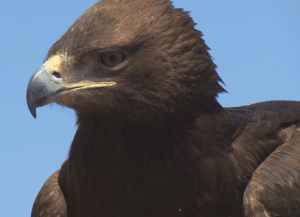
by Pigeon Patrol | Apr 18, 2016 | Animal Deterrent Products, Bird Netting, UltraSonic Bird Control
 The University of Canterbury (UC) hopes a native falcon will eradicate hundreds of pigeons plaguing the campus.
The University of Canterbury (UC) hopes a native falcon will eradicate hundreds of pigeons plaguing the campus.
In its latest move to reduce the pigeon population, a karearea bird – as pictured on the $20 banknote – has been trained to make territorial flights to scare off flocks of pest birds from buildings and the campus.
Marlborough Falcon Trust handlers Vikki Smith and Rob Lawry have been free-flying the specially bred one-year-old karearea, called Tappe, in what is believed to be the first programme of its kind in New Zealand.
Marlborough Falcon Trust handler Rob Lawry hopes Tappe, a karearea bird, will stop University of Canterbury’s pigeon problem.
DEAN KOZANIC
Marlborough Falcon Trust handler Rob Lawry hopes Tappe, a karearea bird, will stop University of Canterbury’s pigeon problem.
UC engineering services manager Rob Oudshoorn said the pigeon problem had “escalated dramatically” since the quakes when central city roosting spots were pulled down.
Combined with an abundance of food from the ruined city and the campus’ proximity to town, the university’s pigeon population has ballooned into the hundreds and affects more than 20 buildings.
The falcon is the university’s latest innovation to solve the problem after unsuccessful attempts using electric fencing, spikes and controlled culling with slug guns, Oudshoorn said.
Excrement is the biggest problem the birds bring as it piles around doors, windows, footpaths, and roofs, he said. Where pigeon numbers are high, buildings deteriorate more rapidly and the spread of disease increases.
“And depending on the scale of it, it can become quite an issue. In the extreme if it’s left there for a long period of time, those piles of excrement bring in maggots, and the excrement itself is pretty toxic too really.”
With a population of around 6000, karearea are rare. They are a natural predator to pigeons, which use avoidance and escape as a natural defence.
The natural bird control technique is used around the world, including Dubai, airports and London’s Trafalgar Square.
Lawry said the birds are trained to fly to a lure held by an instructor, rather than to capture birds.
“As the falcon comes rocketing towards the lure I pass it behind me in the direction I want it to travel, and so he goes up high in that direction. When he goes high the pigeons will go ‘I’m out of here because there’s a falcon here’. But at that point if there’s a really slow pigeon the falcon might get it.”
About Pigeon Patrol:
Pigeon Patrol Products & Services is the leading manufacturer and distributor of bird deterrent (control) products in Canada. Pigeon Patrol products have solved pest bird problems in industrial, commercial, and residential settings since 2000, by using safe and humane bird deterrents with only bird and animal friendly solutions. At Pigeon Patrol, we manufacture and offer a variety of bird deterrents, ranging from Ultra-flex Bird Spikes with UV protection, Bird Netting, 4-S Gel and the best Ultrasonic and audible sound devices on the market today.
Voted Best Canadian wholesaler for Bird Deterrent products four years in a row.
Contact Info: 1- 877– 4– NO-BIRD (www.pigeonpatrol.ca)
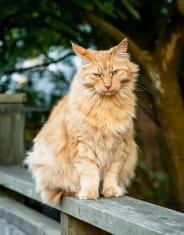
by Pigeon Patrol | Apr 16, 2016 | 4-S Gel Bird repellent, Animal Deterrent Products, Bird Netting, Pigeon Patrol's Services
 Owning a cat is known to have positive health effects, such as reducing stress and improving mood. But it can have downsides, too.
Owning a cat is known to have positive health effects, such as reducing stress and improving mood. But it can have downsides, too.
Allergy UK estimates that half of all asthmatic children are allergic to cats, for example.
Now scientists are looking at whether Britain’s ten million cats are putting their owners at risk of another condition: anxiety.
The focus of their investigation is Toxoplasma gondii, a tiny, single-cell parasite commonly found in cat droppings, which causes the disease toxoplasmosis.
Pregnant women have long been advised to avoid emptying cat litter trays, as ingesting the parasite accidentally from unwashed hands in early pregnancy can cause miscarriage or stillbirth. In adults, more rarely it can also lead to blindness by causing scarring at the back of the eye. Other sources of infection include undercooked meat and unwashed fruit and vegetables.
Now scientists think exposure to Toxoplasma gondii could be to blame for many cases of anxiety.
It’s a theory backed by some of Britain’s leading experts on parasitic diseases.
In a study at the University of Michigan, blood samples from 450 adults were checked for antibodies to Toxoplasma gondii.
The presence of these antibodies is a sign the person has been infected. Researchers then identified the study participants who had been diagnosed with generalised anxiety disorder, or GAD.
Anxiety is a normal but temporary response to stress or danger. But with GAD, the anxiety is excessive – a constant worrying when there is no danger present. Up to 7 per cent of the population – nearly five million people in Britain – are thought to be affected with symptoms, ranging from a racing heartbeat and shortness of breath to agitation and constant dread. The University of Michigan research, published in the journal Brain, Behaviour and Immunity, found that people with antibodies to the parasite were twice as likely to have been diagnosed with GAD.
And those with the highest levels of antibodies, suggesting greater exposure to the parasite, were three times more likely to be affected by GAD. It’s thought that while antibodies might destroy some parasites, others evade detection and head for the brain.
The researchers said: ‘Our study is the first to examine the association between T. Gondii infection and diagnosed anxiety disorder.’
This is not the first time the parasite has been linked to brain-related problems. Previous research has linked infection with this parasite to an increased risk of schizophrenia and learning disabilities in children.
‘There are even some fascinating studies showing Toxoplasma can cause decreased reaction times and a greater chance of being involved in road accidents,’ says Professor Joanne Webster, from the Centre for Emerging, Endemic and Exotic Diseases at the Royal Veterinary College in London, whose research in the Nineties led to an extraordinary discovery about the effect Toxoplasma had on rats’ behaviour.
The parasite exits the body via droppings – and, if these are then eaten by a rat, the parasite heads straight for the brain, where it somehow switches off the innate fear the rodent has of cats, and makes it crave the smell of feline urine.
All the rat’s survival instincts disappear and it effectively serves itself up as dinner for a cat. ‘It’s basically manipulating the rat’s mind,’ says Professor Webster.
It’s this same ‘manipulation’ which scientists think might trigger anxiety in humans.
To be on the safe side, wear gloves when cleaning a litter tray
Studies suggest Toxoplasma produces its own supply of dopamine, a brain chemical that sends signals between cells.
The parasite’s dopamine might disrupt the normal chemical balance in the human brain.
Although too little dopamine has been linked with anxiety, so has too much, and research suggests that the parasite can trigger over-activity in the amygdala, the area of the brain that is involved in expressing anxiety.
But should cat owners be worried? There are only 350 confirmed human cases of toxoplasmosis in England and Wales a year.
But according to NHS Choices, up to a third of us will be infected at some point, yet not even notice any symptoms (typically it causes flu-like symptoms that last for a couple of weeks).
Maggie Roberts, director of veterinary services at Cats Protection, says: ‘I have lots of friends who are vets and have handled hundreds of cats and were tested during pregnancy for Toxoplasma – and I don’t know one who has tested positive.’
She says cats are infectious for only about ten days in their whole life. Afterwards, they are resistant. ‘To be on the safe side, wear gloves when cleaning a litter tray and wash your hands thoroughly afterwards.’
About Pigeon Patrol:
Pigeon Patrol Products & Services is the leading manufacturer and distributor of bird deterrent (control) products in Canada. Pigeon Patrol products have solved pest bird problems in industrial, commercial, and residential settings since 2000, by using safe and humane bird deterrents with only bird and animal friendly solutions. At Pigeon Patrol, we manufacture and offer a variety of bird deterrents, ranging from Ultra-flex Bird Spikes with UV protection, Bird Netting, 4-S Gel and the best Ultrasonic and audible sound devices on the market today.
Voted Best Canadian wholesaler for Bird Deterrent products four years in a row.
Contact Info: 1- 877– 4– NO-BIRD (www.pigeonpatrol.ca)

 Back in February, the BBC posted a story about a Seattle girl who got gifts from crows. She was brought bolts, beads, buttons, earrings, and bones, among other things. It was also revealed that she feeds these animals. The essence of the story, the reason it went viral, is it so perfectly, in the popular imagination, captured an innocent relationship between a child and the wild. The birds understood her and she understood them. Like all children, she had not become a human (experienced) yet. She still had a primal connection with the animal kingdom.
Back in February, the BBC posted a story about a Seattle girl who got gifts from crows. She was brought bolts, beads, buttons, earrings, and bones, among other things. It was also revealed that she feeds these animals. The essence of the story, the reason it went viral, is it so perfectly, in the popular imagination, captured an innocent relationship between a child and the wild. The birds understood her and she understood them. Like all children, she had not become a human (experienced) yet. She still had a primal connection with the animal kingdom.

 A warehouseman died from lung cancer caused by birds pecking the asbestos roof of a store where he used to work, an inquest heard.
A warehouseman died from lung cancer caused by birds pecking the asbestos roof of a store where he used to work, an inquest heard.
 CASTLEHILL Church has been made secure ahead of a major clean-up inside.
CASTLEHILL Church has been made secure ahead of a major clean-up inside.
 Who or what is killing birds in Utica’s downtown?
Who or what is killing birds in Utica’s downtown?
 The University of Canterbury (UC) hopes a native falcon will eradicate hundreds of pigeons plaguing the campus.
The University of Canterbury (UC) hopes a native falcon will eradicate hundreds of pigeons plaguing the campus.
 Owning a cat is known to have positive health effects, such as reducing stress and improving mood. But it can have downsides, too.
Owning a cat is known to have positive health effects, such as reducing stress and improving mood. But it can have downsides, too.